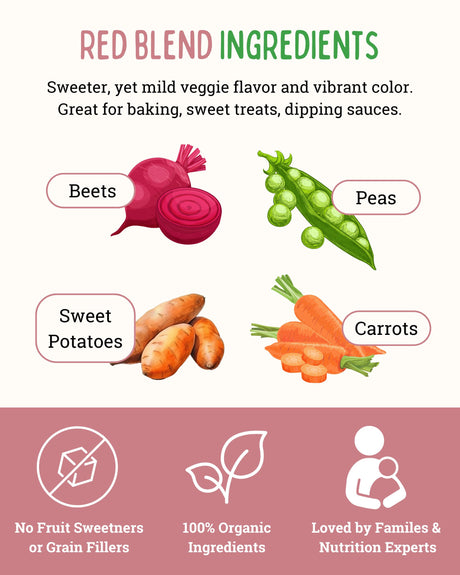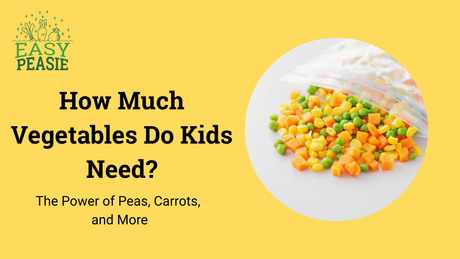Navigating the Supplement Aisle
In recent years, the nutritional supplements market has exploded, becoming a staple in many of our daily routines. From vitamins to minerals, probiotics to proteins, there's a supplement for almost everything. This boom is a testament to our collective pursuit of better health, vitality, and wellness.
But as we stand in front of these ever-expanding shelves, it's essential to pause and reflect. While these bottles and packets promise a plethora of health benefits, it's crucial to remember the age-old adage: knowledge is power.
Understanding what you're consuming is not just about reading the front label but diving deep into the ingredients, the sources, and the potential effects on our bodies. After all, in our quest for health, we want to ensure we're making informed choices that truly benefit our well-being.
The Power Behind the Print: Why Labels Matter
When it comes to nutritional supplements, the label is more than just a piece of paper; it's a roadmap to understanding the product's journey from source to shelf. One of the primary reasons we should pay attention to these labels is to ensure product safety and efficacy.
Not all supplements are created equal, and the label often reveals the quality of the ingredients, the dosage, and any potential additives or fillers. By understanding these components, we can gauge the product's potential effectiveness and how it might interact with our unique biology.
Moreover, these labels empower us to make informed choices for better health outcomes. In a market saturated with options, having a clear understanding of what's inside each bottle allows us to compare, contrast, and choose supplements that align with our health goals and dietary needs.
Whether we're looking for a vegan protein powder, a gluten-free multivitamin, or a probiotic free from artificial preservatives, the label holds the answers. In essence, by deciphering these labels, we're taking an active role in our health journey, ensuring that every pill, powder, or potion we consume brings us a step closer to our wellness aspirations.
Decoding the Details: Understanding Supplement Facts

Serving Size and Servings Per Container:
At the heart of every supplement label is the recommended serving size. This crucial detail informs us about the amount we should consume to achieve the desired health benefits.
It's essential to stick to this recommendation unless advised otherwise by a healthcare professional. Adjacent to the serving size, you'll often find the servings per container.
This gives a clear picture of how long a supplement will last, helping in budgeting and planning for repurchases. For parents, especially, understanding the serving size is vital to ensure kids are getting the right amount without overdoing it.
Daily Value Percentages:
The daily value percentages on a supplement label can sometimes be a source of confusion. In essence, these percentages indicate how much of a particular nutrient the supplement provides in relation to the recommended daily intake.
For instance, if a vitamin C supplement offers 150% of the daily value, it's providing more than the typical daily requirement. This can be especially helpful when trying to address specific nutritional gaps or when following a diet that might be deficient in certain nutrients.
Active vs. Inactive Ingredients:
Distinguishing between active and inactive ingredients is a game-changer when selecting supplements. Active ingredients are the powerhouses – the vitamins, minerals, or herbs that provide the health benefits.
In contrast, inactive ingredients, often listed as "other ingredients," can include fillers, binders, colors, or flavors. While they don't contribute to the supplement's nutritional value, they play a role in the product's consistency, shelf life, or taste.
Being aware of these can be especially important for those with allergies, sensitivities, or specific dietary preferences.
Navigating the World of Certifications: What They Really Mean
Organic, Non-GMO, Gluten-Free, and Beyond
In today's health-conscious world, labels like Organic, Non-GMO, and Gluten-Free have become more than just buzzwords; they're indicators of quality and safety.
An Organic certification ensures that the product is free from synthetic additives, pesticides, and genetically modified organisms.
For those keen on avoiding genetically modified ingredients, the Non-GMO label is a must-look.
Meanwhile, the Gluten-Free certification is a beacon for those with celiac disease or gluten sensitivities, ensuring the product doesn't contain this particular protein found in wheat and some other grains.
These labels, among others, serve as a quick reference for consumers to align their purchases with their dietary preferences and health goals.
Third-Party Testing and Quality Assurance Seals
While many products might make bold claims, third-party testing and quality assurance seals offer an added layer of trust. These certifications mean that an independent organization has reviewed the product's manufacturing process, ensuring it meets specific standards for quality and safety.
For instance, a seal from the U.S. Pharmacopeial Convention (USP) or NSF International indicates that the product contains the ingredients listed on the label in the declared potency and amounts.
It also means the product doesn't contain harmful levels of specific contaminants and is made in a facility following Good Manufacturing Practices. In the vast world of supplements, these seals are akin to a gold standard, helping consumers make informed choices with confidence.
Allergens and Dietary Needs in Supplements

Common Culprits: Allergens to Watch Out For
When diving into the world of supplements, it's essential to be aware of potential allergens that might be lurking in those capsules and powders.
Some of the usual suspects include soy, often used as a filler or in soy-derived ingredients; dairy, which can be found in some probiotics or protein powders; and nuts, which might be present in certain herbal supplements or as a source of oil.
It's always a good practice to read labels meticulously, especially if you or a family member has a known allergy. Remember, just because it's a supplement doesn't mean it's free from common allergenic ingredients.
Deciphering Dietary Labels: Vegan, Vegetarian, and Beyond
Beyond allergens, many individuals are on the lookout for supplements that align with their dietary lifestyles. Whether it's for ethical, health, or personal reasons, understanding these labels is crucial.
Vegan supplements ensure no animal-derived ingredients are used, which is especially important for products like omega-3s, traditionally sourced from fish, or certain vitamins like B12. Vegetarian supplements might include ingredients derived from animals (like dairy) but won't contain ingredients directly taken from an animal's body, such as gelatin.
Other labels to look out for might include Kosher, Halal, or Paleo-friendly, each catering to specific dietary or religious needs.
Decoding Supplement Labels: Spotting the Red Flags

Beware of Bold Claims: Too Good to Be True?
Navigating the supplement aisle, it's not uncommon to come across products boasting bold health claims. From "miracle weight loss solutions" to "instant energy boosters," these promises can be enticing. However, it's essential to approach such claims with a healthy dose of skepticism.
The FDA doesn't evaluate all health claims made by supplement manufacturers, meaning some might be more marketing hype than reality. Always remember: if it sounds too good to be true, it probably is.
Transparency is Key: What's Hiding in That Ingredient List?
A quality supplement should have nothing to hide. If you're struggling to understand what's in a product or find that the ingredient list is vague or overly complex, consider it a red flag. Lack of ingredient transparency can be a sign that the product contains fillers, artificial additives, or other undesirable components.
As consumers, we deserve to know exactly what we're putting into our bodies, so always opt for products that are clear and upfront about their ingredients.
Who Made This? The Importance of Manufacturer Contact Information
It might seem like a small detail, but the absence of contact information for the manufacturer can be a significant warning sign. Reliable and trustworthy companies stand by their products and are available to answer questions or address concerns.
If you can't find a way to contact the company or if their details are hidden away, you might want to think twice before adding their product to your cart.
Navigating Supplements: The FDA's Role

Regulating, Not Approving: The FDA's Approach to Supplements
When it comes to dietary supplements, many assume that the FDA treats them the same way as over-the-counter or prescription drugs. However, that's not the case. Unlike drugs, dietary supplements are not required to be reviewed or approved by the FDA before they hit the market.
Instead, the responsibility lies with the manufacturers and distributors to ensure their products are safe and accurately labeled. The FDA steps in primarily when safety issues arise post-market, acting as a regulatory body to monitor and take action against any supplements that are misbranded or pose a risk to public health.
Drugs vs. Supplements: A Distinct Difference in Approval
The distinction between how the FDA handles drugs and supplements is crucial for consumers to understand. Drugs undergo rigorous testing and must provide substantial evidence of their safety and efficacy before receiving FDA approval.
This process ensures that by the time a drug reaches consumers, it's been thoroughly vetted. On the other hand, supplements, while required to be safe, don't undergo the same stringent pre-market approval process.
This difference doesn't necessarily mean supplements are unsafe, but it does underscore the importance of consumers doing their due diligence, researching products, and consulting with healthcare professionals before adding a new supplement to their regimen.
Empowerment Through Knowledge
Knowledge is Power in Health Choices
One of the most empowering tools we have at our disposal is knowledge. In the realm of nutritional supplements, understanding labels, ingredients, and the role of regulatory bodies gives us the upper hand.
It allows us to navigate the vast market with confidence, ensuring that we're making choices that align with our health goals and values.
Prioritizing Health and Safety Above All
While the allure of potential health benefits can be tempting, it's paramount to prioritize safety. This means not just relying on marketing claims but delving deeper, researching, and consulting with healthcare professionals. After all, our health is an invaluable asset, and it's worth the extra effort to protect and nurture it.
Becoming Proactive, Informed Consumers
In today's age of information, there's no reason to be a passive consumer. With resources at our fingertips, we have the opportunity to be proactive, asking questions, seeking out reputable sources, and making informed decisions.
So, as you explore the world of supplements and other health products, remember to harness the power of knowledge, prioritize your well-being, and always advocate for your health.
In conclusion, the journey to optimal health is a personal one, filled with choices at every turn. By staying informed and proactive, we can ensure that each decision we make is a step in the right direction. Here's to empowered, health-conscious choices!
Leave your comments below; we love to hear from you! And don't forget to follow EasyPeasie for more veggie info and convo on YouTube, Facebook, and Instagram! ~ThePeas













